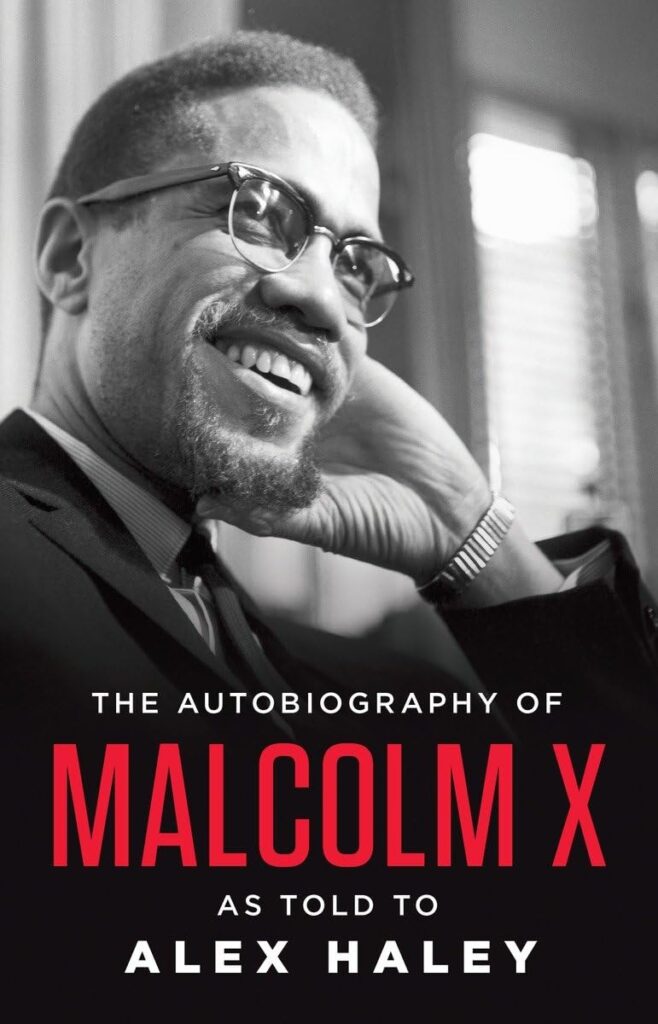I’ve always believed that the story of a life can reveal so much about the world, especially when that life is as extraordinary as Malcolm X’s. His autobiography isn’t just a narrative about one man’s journey; it’s a vivid window into a tumultuous period in American history, a gripping exploration of identity, transformation, and the relentless pursuit of justice.
1. The Early Years: Struggles and Survival
Malcolm X’s life begins with a backdrop of profound adversity. Born Malcolm Little in Omaha, Nebraska, his early years were marked by the harsh realities of racism, violence, and economic hardship. His father, a preacher and fervent supporter of Marcus Garvey’s Back to Africa movement, was tragically killed when Malcolm was just a child, a crime many believe was racially motivated. His mother’s subsequent mental breakdown left young Malcolm and his siblings scattered in foster homes.
As a reader, I was struck by the resilience Malcolm displayed during these years. Despite the odds stacked against him, he possessed an undeniable spark—a defiant will to survive. But like many young Black men of his time, he was drawn into a life of crime. It’s easy to see how the lack of opportunity and systemic racism funneled him into this path. He hustled in Boston and New York, living fast and hard, eventually landing in prison. But what stands out to me is how Malcolm’s darkest days laid the foundation for his eventual transformation.

2. The Transformation: From Malcolm Little to Malcolm X
Prison can break a man, but for Malcolm, it was the crucible that forged his new identity. This section of his life is where the narrative truly captivated me. Imagine being confined, stripped of your freedom, yet finding liberation through knowledge. In prison, Malcolm educated himself, devouring books and challenging his worldview. It was also where he encountered the teachings of the Nation of Islam, a turning point that would redefine his life.
The transition from Malcolm Little to Malcolm X was not just a change of name, but a complete metamorphosis. “X” symbolized the unknown African ancestry lost to slavery. For me, this part of the story highlights the power of self-education and the quest for identity. Malcolm X emerged from prison not as the man he once was, but as a voice that would soon resonate with the disillusioned and marginalized.
3. The Voice of a Movement: A Leader Emerges
As Malcolm X rose to prominence within the Nation of Islam, he became a magnetic force, drawing people in with his fiery oratory and uncompromising stance on Black empowerment. This period of his life is fascinating because it shows how he became both a hero and a controversial figure. He didn’t sugarcoat his message, which was in stark contrast to the more pacifist approach of the civil rights movement led by Dr. Martin Luther King Jr.
Malcolm’s message was one of self-defense, self-respect, and a demand for justice by any means necessary. He rejected the notion that Black people should turn the other cheek, advocating instead for pride and resistance. Reading about his speeches and the impact they had, I could sense the urgency and anger of the era, and how Malcolm’s words served as a rallying cry for many.
But what struck me the most was his unwavering commitment to truth as he saw it. Even as he became a national figure, Malcolm was unafraid to challenge not only the system of white supremacy but also the inconsistencies within the Nation of Islam. His eventual break with the organization marked another significant transformation in his life.
4. Pilgrimage and Evolution: A Broader Vision
One of the most powerful sections of Malcolm X’s life was his pilgrimage to Mecca. Before this journey, he had been a staunch advocate of Black nationalism, viewing the struggle in the United States as a fight between Black and white. But his experiences in Mecca profoundly changed him. He saw people of all races, united in their faith, which challenged his previous beliefs about race and brotherhood.
This evolution in his thinking is what I find truly inspiring. Malcolm was not rigid in his views; he was willing to grow, to change, to question even his most deeply held convictions. After Mecca, his message shifted towards a more inclusive human rights perspective, advocating for unity among all oppressed people. This broadening of his vision, I believe, shows a man not just of principles but of deep introspection and courage to admit when he was wrong.
5. Legacy and Lessons: A Life Cut Short
Malcolm X’s assassination in 1965 at the age of 39 was a tragic end to a life that had only begun to unfold its full potential. Yet, even in death, his influence only grew. His autobiography, completed by Alex Haley, became a seminal work that continues to resonate with readers today, including myself.
What I take away from Malcolm X’s story is more than just the tale of a man who overcame immense odds. It’s a powerful reminder of the importance of self-discovery, of standing up for what you believe in, and of being open to change. His life was a testament to the fact that transformation is possible, no matter how deep your struggles.
So, as I close this reflection on Malcolm X’s life, I find myself pondering the broader implications of his journey. How can we apply the lessons of his life to our own? How can we be fearless in our pursuit of truth, and how can we evolve our views in the face of new experiences and insights? Malcolm X’s story is not just history—it’s a call to action, a challenge to each of us to examine our own lives and beliefs with the same honesty and courage. What will you do with that challenge?




